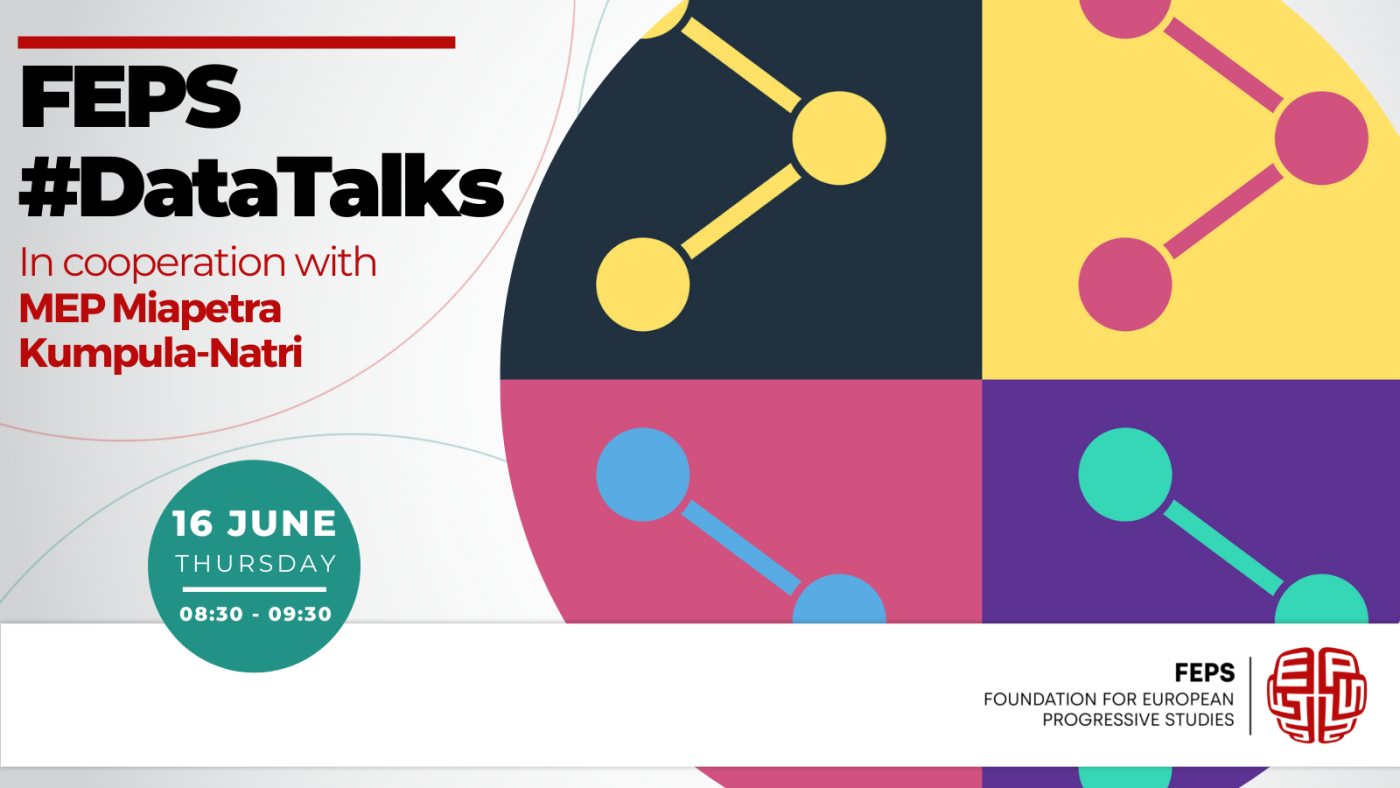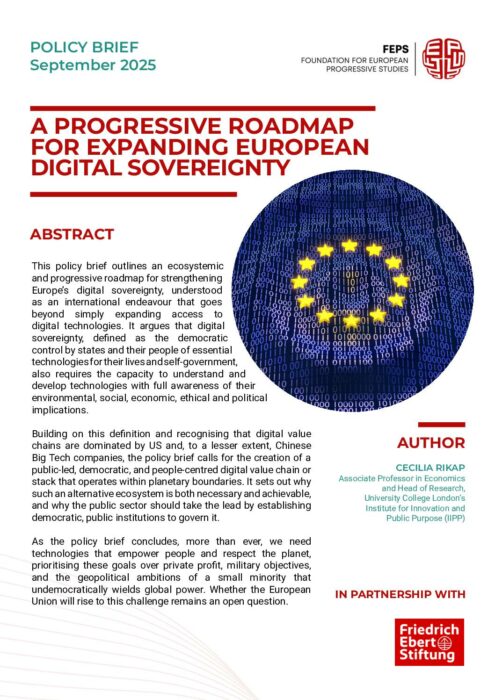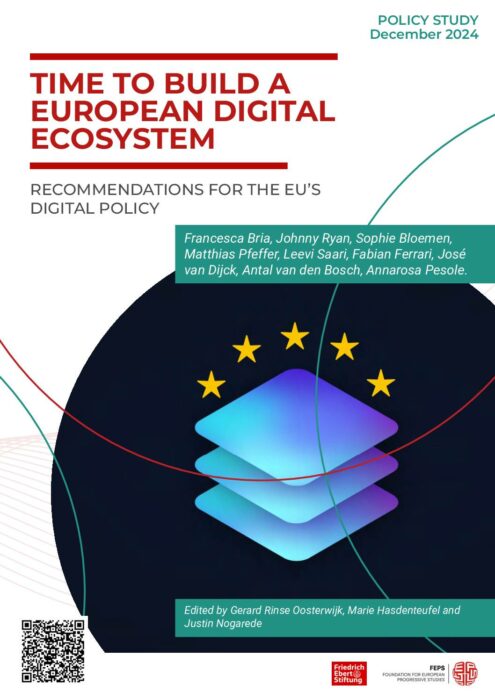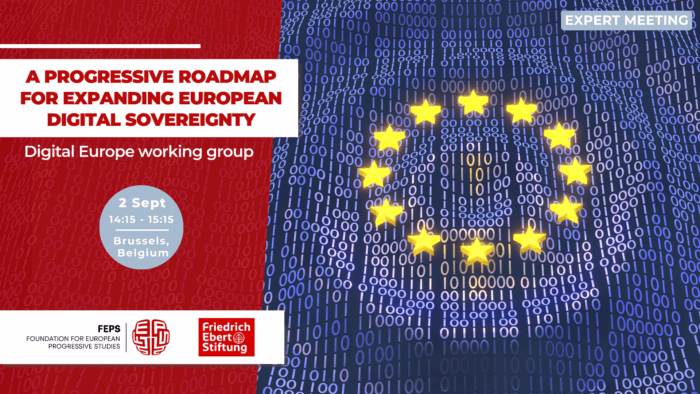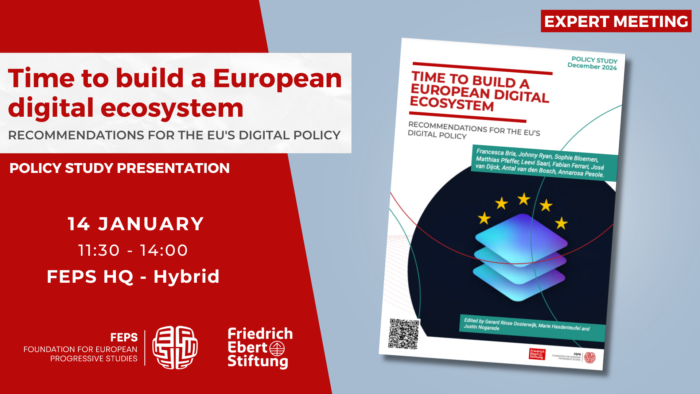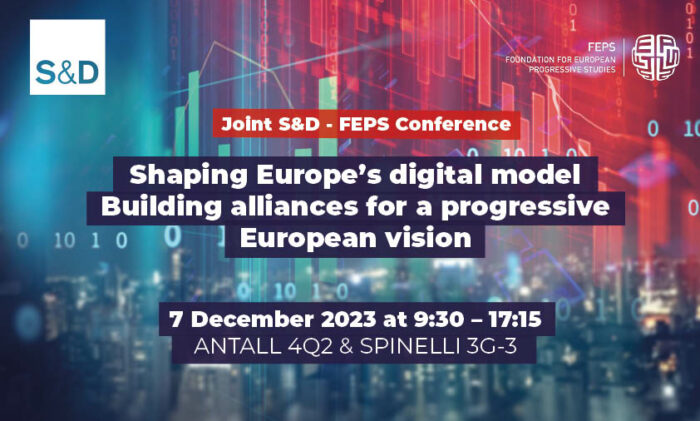Find all related publications
Publications
Find all related events
Events
Past
02/09/2025
European Parliament (Expert meeting)
14/01/2025
FEPS HQ (Expert meeting - Hybrid)
07/12/2023
European Parliament, Brussels
Load more...
Find all related Audiovisual
Audiovisual
17/03/2025
17/03/2025
Find all related news
News
Find all related in the media
In the media

